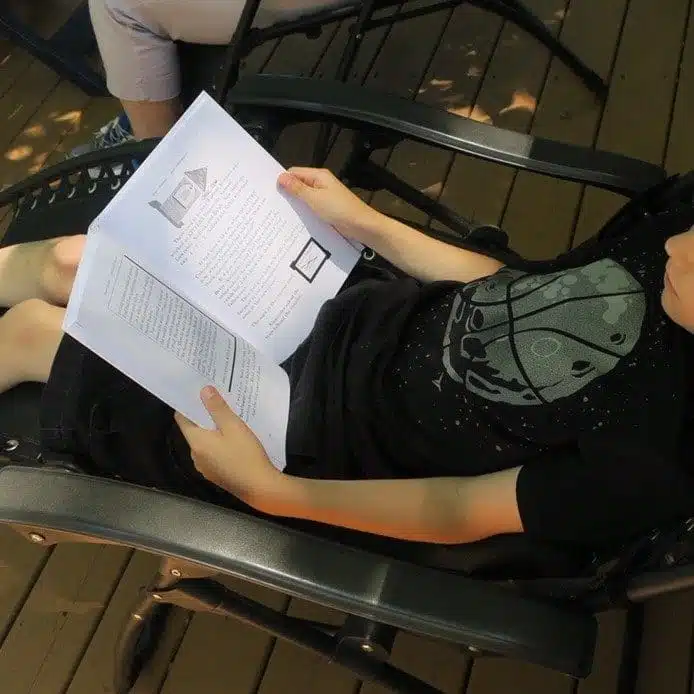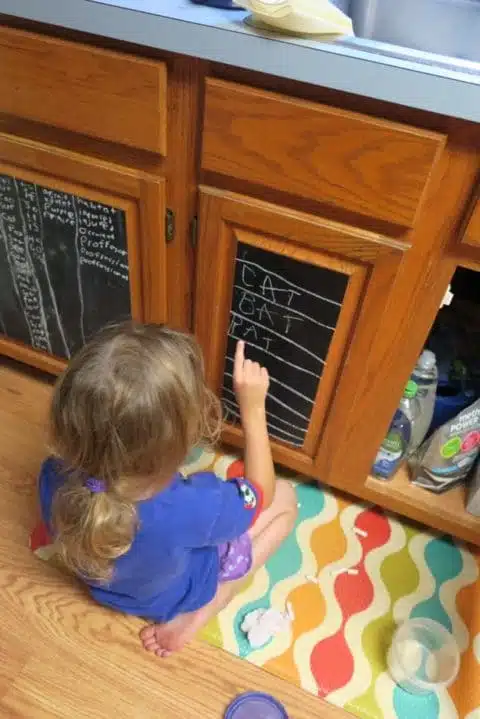7 Homeschooling Freedoms and How to Embrace Them
When life gets crazy, we need to identify and embrace our homeschooling freedoms. In the following article, Heather outlines just seven of the many freedoms homeschooling offers.
It doesn’t matter if you’ve been homeschooling for two weeks, two years, or two decades. We all tend to get into routines. The daily ebb and flow of those routines define our normal. And, as long as that’s working, great!
However, sometimes our routine gets disrupted. Life gets crazy. Sometimes, the crazy affects only our families. Other times, it affects the entire society. In either case, the deviation demands that we have some flexibility in our lives.

One of the greatest strengths of homeschooling is that it affords just that: flexibility. We can make adjustments to fit our family’s needs and current life circumstances, whether temporary or long-term.
7 Homeschooling Freedoms and How to Embrace Them
Don’t overlook these seven homeschooling freedoms. Embrace them!
1. Make Your Own Schedule or Routine
Some families are night owls. Others are raring to go at 6 a.m. When my son is excited about a topic, he rolls out of bed and gets straight to work. Because my girls love doing math with my husband, that tends to happen in the evenings.
Whether you have a strict schedule or a loose routine (or anything in-between), homeschooling gives you the freedom to decide what works. You can be bright-and-early homeschoolers, or you can homeschool at night. (Here is another article about Homeschooling at Night on our sister site, Hip Homeschool Moms.)
We have no-tech mornings at our house, and we usually read right after lunch. It’s what works for our family. If something else works for yours, celebrate that!
2. Take a Break
Our kids aren’t learning machines. They have off-days, and so do we. Kids have periods of intense growth and times of marinating, where things just need to sit for a while.
If something isn’t working, take a break. Go for a walk. Run an errand. Call a friend. Switch it up. Or even take the whole day (or week) off.
My kids have Mondays off (as much as relaxed homeschoolers ever take a break). We still read and interact, but Monday is for play and music lessons. Our weekends are busy, and the kids need a break, so we take one on Mondays.
Your family may need a two-hour lunch break, a mid-morning nature hike, or a built-in catch-up day. You can do that! It’s one of your many homeschooling freedoms.
3. Choose a Comfortable Work Space
Do you know why kids sit at desks? Yes, there are some considerations about ergonomics with writing, but the primary reason that kids sit at desks is that it’s orderly for a large classroom. We have no desks at our home.

We spend lots of time on the floor, on the couch, outside, in the car, and occasionally at the table for art, craft projects, or typing practice.
Try stepping away from your desks or give standing desks a try. And, if your family loves your school desks, embrace them! You’re free to choose what works for you.
4. Choose Your Teachers
This is one of the greatest gifts (and secrets) about homeschooling. I can choose to work with my kids, or my husband can, or we can hire someone else who specializes in a subject.
This year, we outsourced our PE lessons. I get a break, and our kids get time with a phenomenal young man who is incredibly patient. And coordinated.
Other homeschooling families use resources such as Outschool and other online learning curricula, apps, co-ops, or tutors to find good connections and challenges for their kids.
5. Change Your Curriculum
Now, some people take this freedom to the extreme and change things all the time, not giving anything a real chance. But one of the greatest freedoms in homeschool is that you can switch curriculum if what you’re using isn’t working.
That book isn’t connecting? Don’t finish it. Find another one.
That math isn’t making sense? Let’s do something more hands-on for a while.
Need more time on handwriting? Great. Do it.
Your kid suddenly develops an interest in geology, even though biology was planned for this year? Go with it.
One child loved a certain curriculum, but another is fighting it every step? Try something different.

It’s okay to make changes. That shows adaptability and is actually a key life skill to model for your child.
6. Change the Pace
No two children learn at the same speed. Even my twins are on different timelines for everything, from reading to math to motor skills. Sound familiar? Celebrate that!
My son devours math like it’s ice cream. There’s no reason for him to finish an entire page of practice problems if he can do the hardest four and demonstrate mastery.
If my daughter’s frustration tolerance for writing is five minutes, then we’ll do five minutes, even if we don’t get as far. And the next day, maybe we’ll try for six.
Recognizing where your children are and honoring their individuality is vital to your connection and mutual trust.
Recognizing where your children are and honoring their individuality is vital to your connection and mutual trust.7. Pursue Interests, Dive Deep, Specialize
To be honest, it’s this freedom that makes homeschoolers so well-prepared for college and life beyond. I taught in public and private schools for years, and as much as we tried to honor our students’ interests, they still had seven classes a day with homework for each class, 50 minutes max for each subject, and a prescribed order for completion, because that’s how school works.
In homeschool, if my child decides that he loves chemistry and wants to spend 3 hours a day reading about it, we make space for that. If my daughter decides she wants 2 hours of reading time every day, we can make space for that too.
When the weather’s nice, we can dive deep into nature explorations, forest walks, beach cleanups, and physical activity. When we find a new book series we love, we can read two a day. In the grand scheme of things, it will all get done.
I keep a weekly journal to make sure I’m not neglecting things, but we dive deep. It teaches vital life skills, such as concentration, motivation, and self-starting.
There are so many more homeschooling freedoms – too many to name in a single article. Some of my favorites involve teaching our kids values, the wide range of peers they spend time with, and even environmental and philosophical choices we can make.
What is your favorite homeschooling freedom? How does that look for your family?
You Might Also Like
Heather Pleier is a 2nd generation homeschooler raising three curious, creative, out-of-the-box kids on Long Island. They are eclectic game/interest-led/unschooly homeschoolers who dive deep into various interests and celebrate the freedom that homeschooling brings. Her passions include great children’s literature, dark chocolate, exploration, and music. She writes at wonderschooling.net about preserving childhood wonder and curiosity.








I have been homeschooling for 7 years now, and really appreciate this article. I would love to be a fly on your wall for a day!
Entering my 17th year of homeschooling, I would add for #1 to be flexible with the year long schedule. I started out homeschooling all year until my husband requested a longer summer break for the kids.
At the end of that summer, I looked back and was so thankful for the break. In contrast this year I will be doing partial homeschooling for most of the summer, since our move last year disrupted the school year. Flexibility is key!
I am a new to the world of Homeschool, and wow has it been a ride!! I have found your emails such an encouragement and help. So thank you for that!
Thank you so much for letting us know!! 🙂 You’re very welcome!